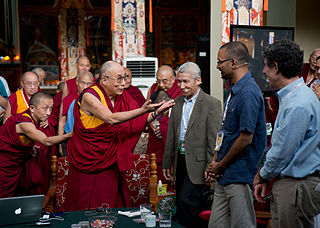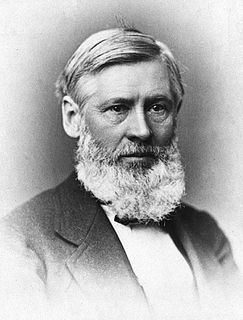A Quote by Richard Davidson
There are certainly beliefs in traditional Buddhism that conflict with basic principles of scientific understanding, .. We can't make sense of those beliefs in any kind of scientific framework.
Related Quotes
The progress of science requires the growth of understanding in both directions, downward from the whole to the parts and upward from the parts to the whole. A reductionist philosophy, arbitrarily proclaiming that the growth of understanding must go only in one direction, makes no scientific sense. Indeed, dogmatic philosophical beliefs of any kind have no place in science.
I conceive that the leading characteristic of the nineteenth century has been the rapid growth of the scientific spirit, the consequent application of scientific methods of investigation to all the problems with which the human mind is occupied, and the correlative rejection of traditional beliefs which have proved their incompetence to bear such investigation.
Science has long been in the value business. Despite a widespread belief to the contrary, scientific validity is not the result of scientists abstaining from making value judgments; rather, scientific validity is the result of scientists making their best efforts to value principles of reasoning that link their beliefs to reality, through reliable chains of evidence and argument.
The 'medical examination' to which abductees are said to be subjected, often accompanied by sadistic sexual manipulation, is reminiscient of the medieval tales of encounters with demons. It makes no sense in a sophisticated or technical framework: any intelligent being equipped with the scientific marvels that UFOs possess would be in a position to achieve any of these alleged scientific objectives in a shorter time and with fewer risks.
Listen to me: Life is not about principles; it`s about happiness.` `But if you don`t have any principles, and if you don`t have faith, you can`t be happy at all,` said Kadife. `That`s true. But in a brutal country like ours, where human life is cheap, it`s stupid to destroy yourself for the sake of your beliefs. Beliefs? High ideas? Only people in rich countries can enjoy such luxuries.` `Actually, it`s the other way round. In a poor country, people`s sole consolation comes from their beliefs.
The need for general scientific understanding by the public has never been larger, and the penalty for scientific illiteracy never harsher. Lack of scientific fundamentals causes people to make foolish decisions about issues such as the toxicity of chemicals, the efficacy of medicines, the changes in the global climate.
Science has been effective at furthering our understanding of nature because the scientific ethos is based on three key principles: (1) follow the evidence wherever it leads; (2) if one has a theory, one needs to be willing to try to prove it wrong as much as one tries to prove that it is right; (3) the ultimate arbiter of truth is experiment, not the comfort one derives from one's a priori beliefs, nor the beauty or elegance one ascribes to one's theoretical models.
It'll be taught in homes that it's not okay to make fun of a kid because he's gay or it's not okay to make fun of a girl cause she's fat. But that we have been living for so long in a culture where so many people's parents supported those beliefs that there wasn't any infrastructure for children understanding right and wrong in those situations, if that makes sense.


































